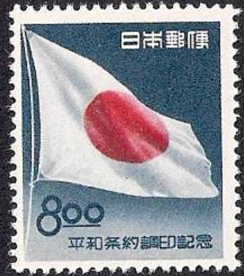
Back اليابان ما بعد الاحتلال Arabic Yaponiya işğaldan sonra Azerbaijani ژاپۆن دوای داگیرکردن CKB Japón en la posguerra Spanish ژاپن بعد از اشغال Persian Histoire contemporaine du Japon French יפן בתקופה שלאחר הכיבוש האמריקאי HE Jepang pascapendudukan ID 連合国軍占領期後の日本 Japanese 전후 일본 Korean
This article has multiple issues. Please help improve it or discuss these issues on the talk page. (Learn how and when to remove these template messages)
|
| Part of a series on the |
| History of Japan |
|---|
 |
Postwar Japan is the period in Japanese history beginning with the surrender of Japan to the Allies of World War II on 2 September 1945, and lasting at least until the end of the Shōwa era in 1989.
Despite the massive devastation it suffered in the Second World War, Japan established itself as a global economic power at peace with the world after the Allied-occupation ended on 28 April 1952 by the Treaty of San Francisco. In terms of political power it was more reluctant, especially in the nonuse of military force. The post-war constitution of 1947 included Article 9, which restricted Japan from having a military force and engaging in war. However, it has operated military forces in the stationing of the United States Forces Japan based on the U.S.-Japan Security Treaty after the Allied occupation and the form of the Japanese Self-Defense Forces since 1954.
Over the years, the meaning of Article 9 has been interpreted differently, because the United States now encourages Japan to control its own security and to join their military strategy more. The Liberal Democratic Party would like to see the Constitution and Article 9 amended.[1]
© MMXXIII Rich X Search. We shall prevail. All rights reserved. Rich X Search